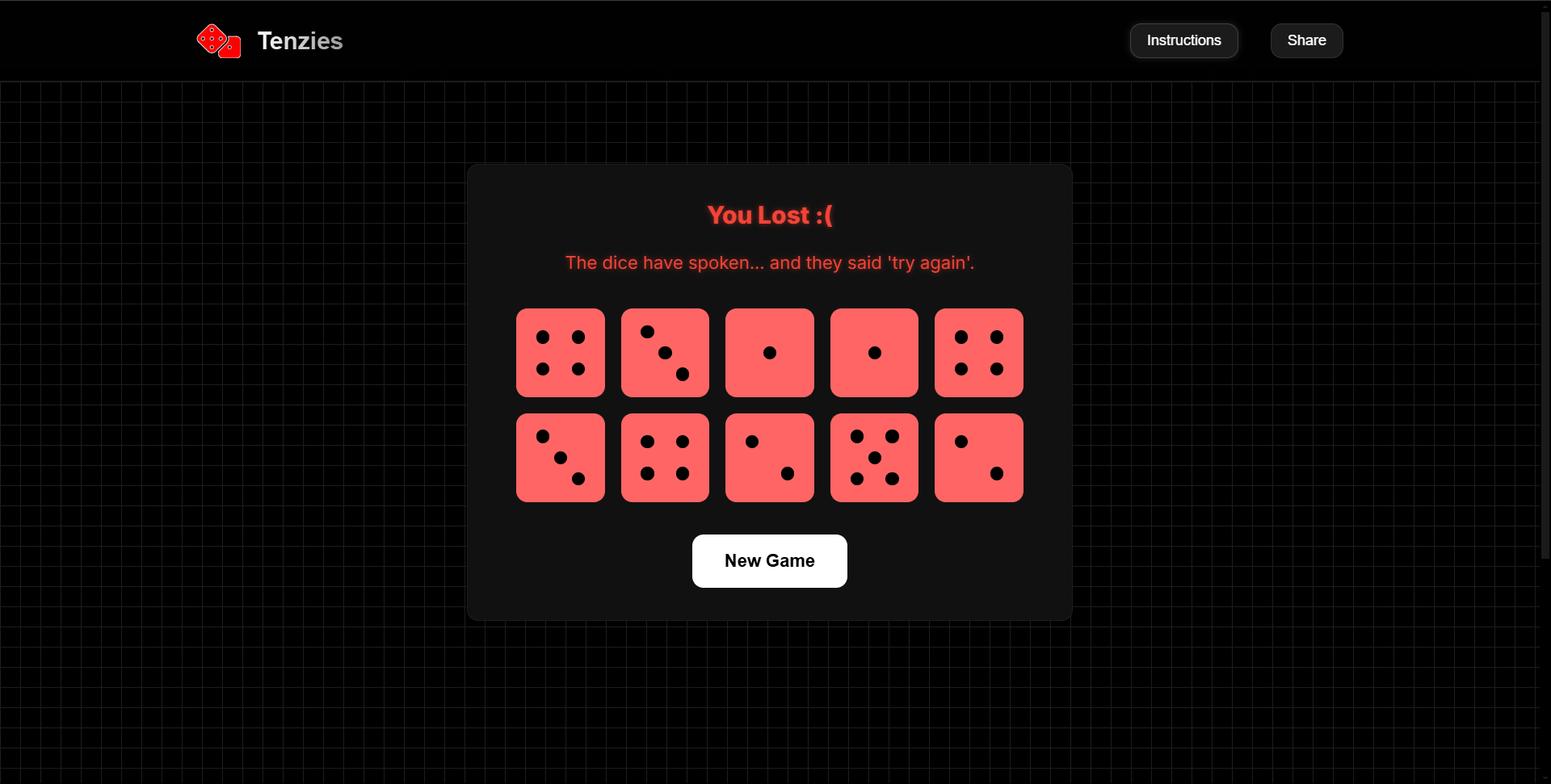Overview
Tenzies is an addictive dice game where strategy meets luck. Players roll ten dice, strategically hold certain values, and continue rolling until all dice match. Built with React, it emphasizes engaging gameplay, smooth animations, and responsive design within Web Development. This project as build as part of my learning journey with Scrimba, do check them out if you are trying to get into web development.
Live: tenzies.ashwin.co.in
Source code: Explore Repo
Goals & Problems Solved
- Create a fun and interactive casual game playable on any device.
- Practice state management and UI updates with React.
- Provide clear win/loss conditions with instant feedback.
- Deliver smooth and responsive animations for an engaging player experience.
Architecture & Tech Stack
| Layer | Technology / Library | Purpose |
|---|---|---|
| Frontend | React, JavaScript, CSS | UI components, game logic, styling |
| Tooling | Vite | Development server and build system |
| Animation | Motion, React Confetti | Smooth transitions, dice animations, victory effects |
| Hosting | Vercel | Deployment and live hosting |
Key Features & UX Flow
-
Interactive Dice Rolling
- Roll ten dice, each with values between 1 and 6.
-
Strategic Holds
- Click dice to “hold” values, keeping them fixed during subsequent rolls.
-
Performance Tracking
- Track number of rolls taken to win.
-
Victory & Loss States
- Win when all dice match; enjoy a confetti animation.
- Display alternate screens when conditions aren’t met.
-
Responsive Design
- Optimized for mobile and desktop play.
Code Walkthrough & Notable Modules
- App.jsx: Main game logic and React state management.
- Die.jsx: Dice component with click/hold interactivity.
- styles.css: Handles layout, responsiveness, and animations.
- animations (Motion): Provides smooth rolling effects.
- React Confetti: Implements celebratory victory screen.
- public/screenshots/: Contains project visuals for documentation.
UI / Responsiveness & Design Decisions
- Clean, game-focused layout to keep attention on dice and rolls.
- Bright colors and animations to enhance playfulness.
- Minimalist footer and instructions for guidance.
- Mobile-first design ensures usability across devices.
Challenges & Learnings
- Implementing stateful gameplay logic (holding dice and re-rolling selectively).
- Using Motion for smooth transitions without performance issues.
- Managing game state resets and replay flow.
- Balancing responsiveness and fun UI design.
Future Improvements
- Add timer-based scoring system.
- Introduce multiplayer mode or leaderboards.
- Support different difficulty levels.
- Add sound effects for rolls, holds, and victory.
Screens & Visuals
Landing Page
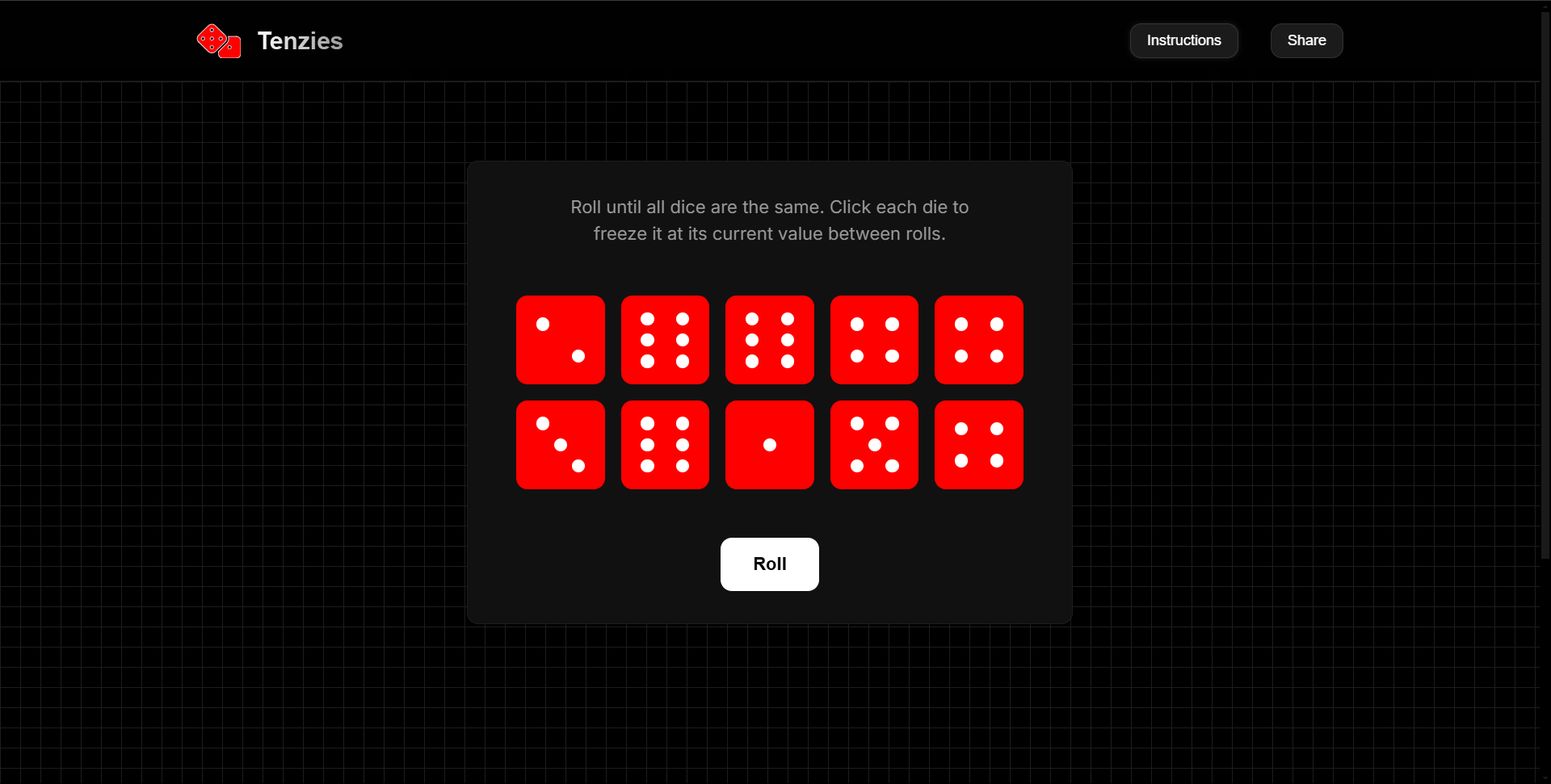
Full Interface
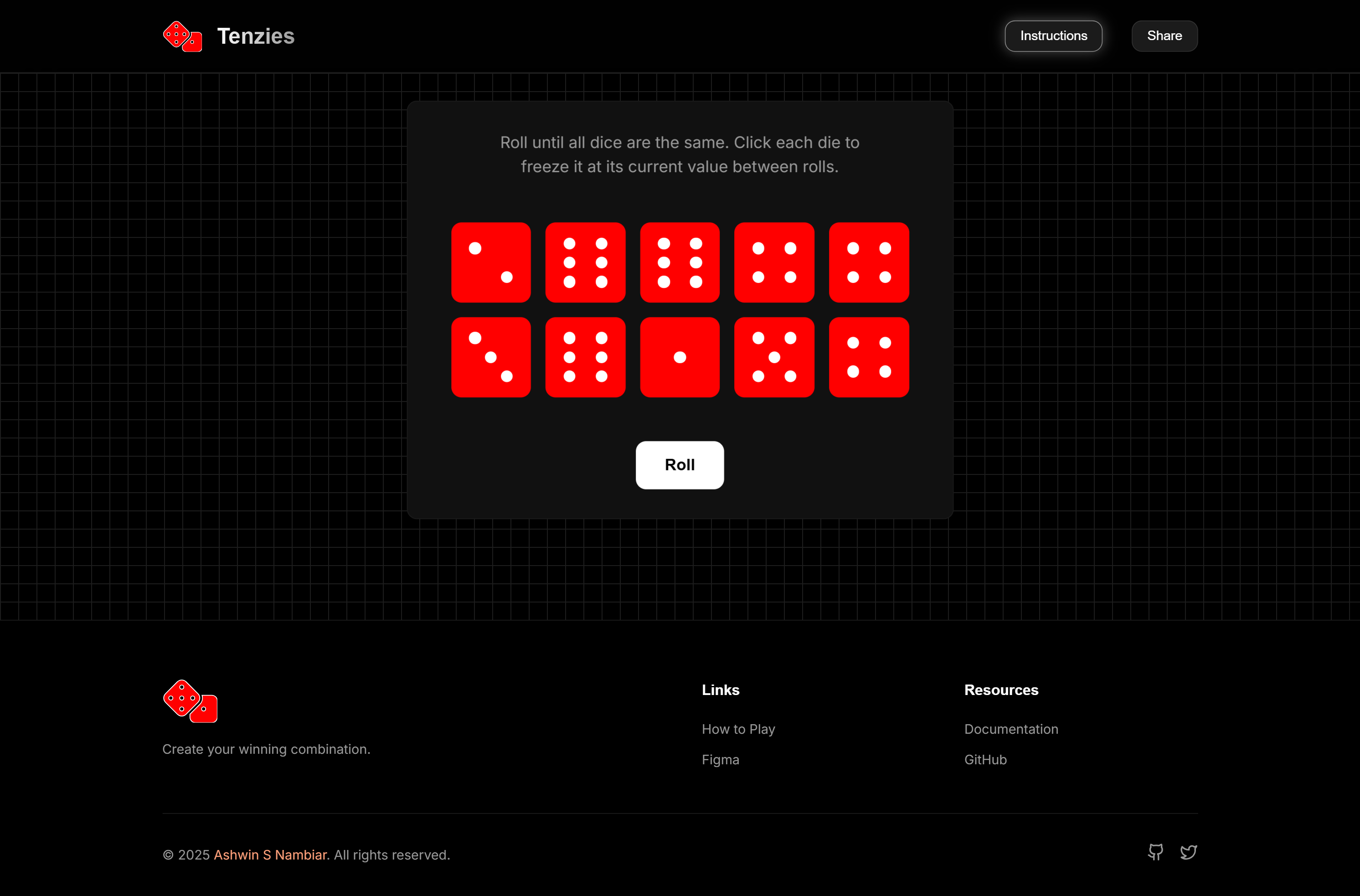
Footer Section
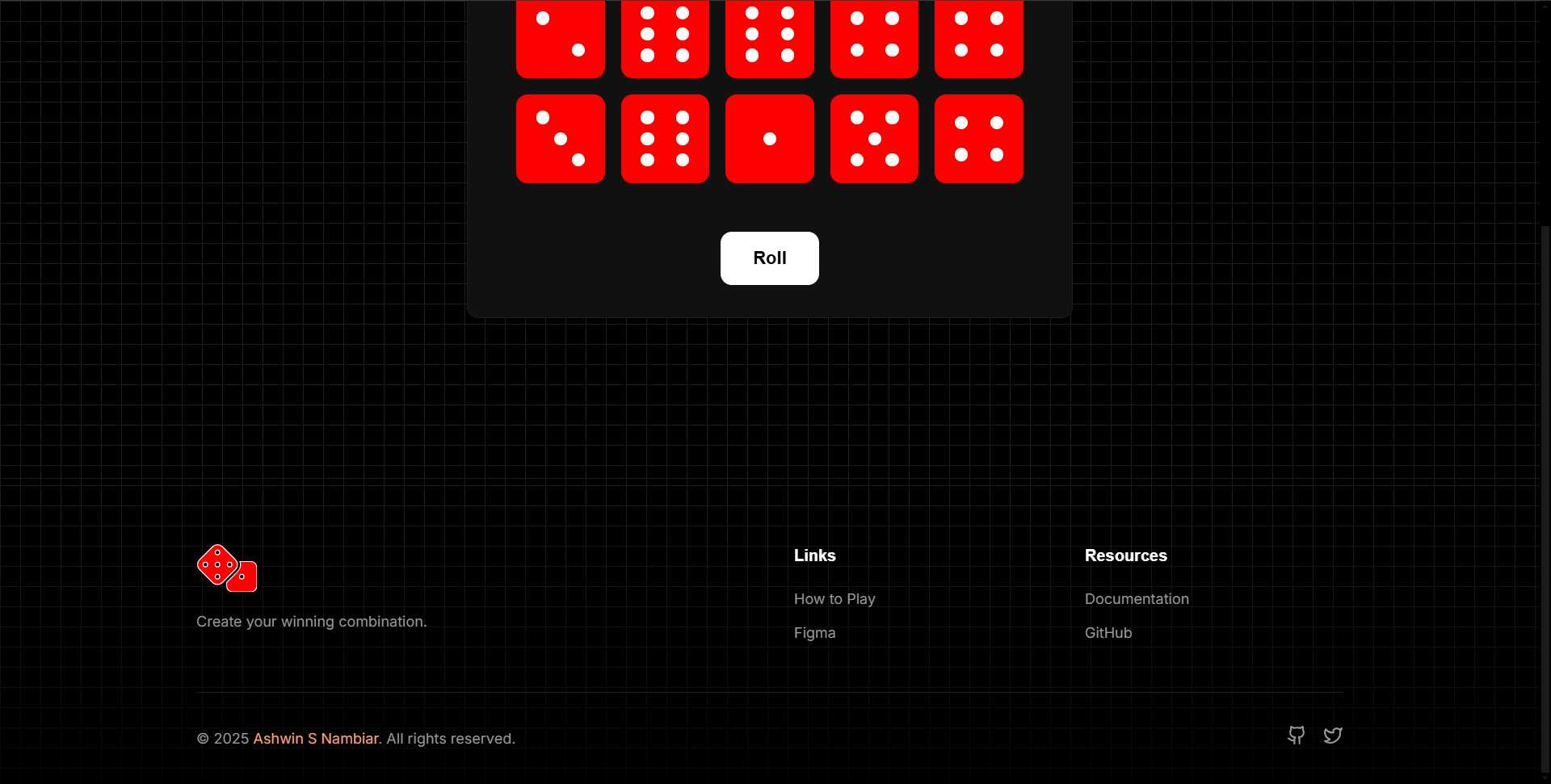
Instructions
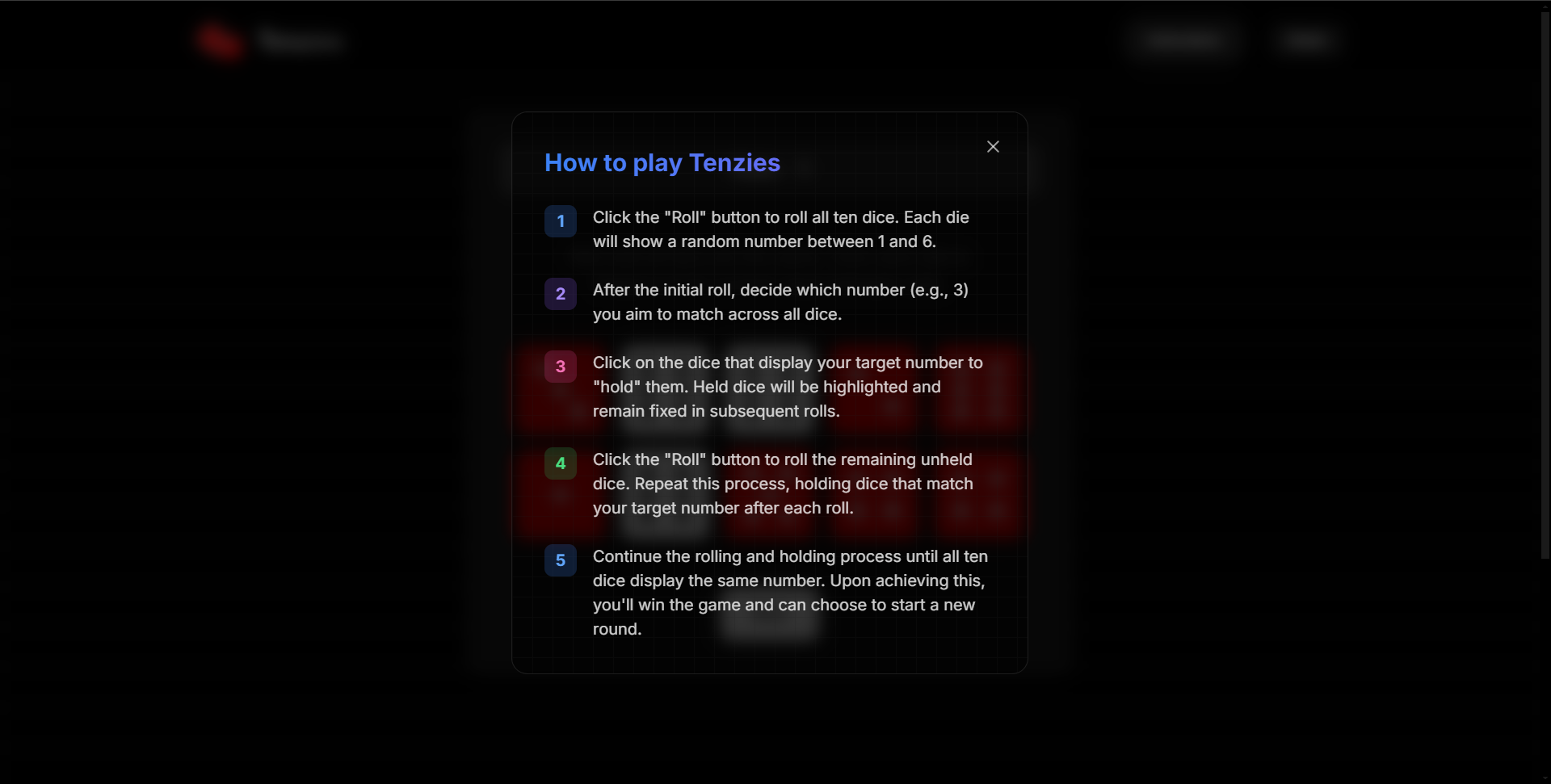
Victory Screen
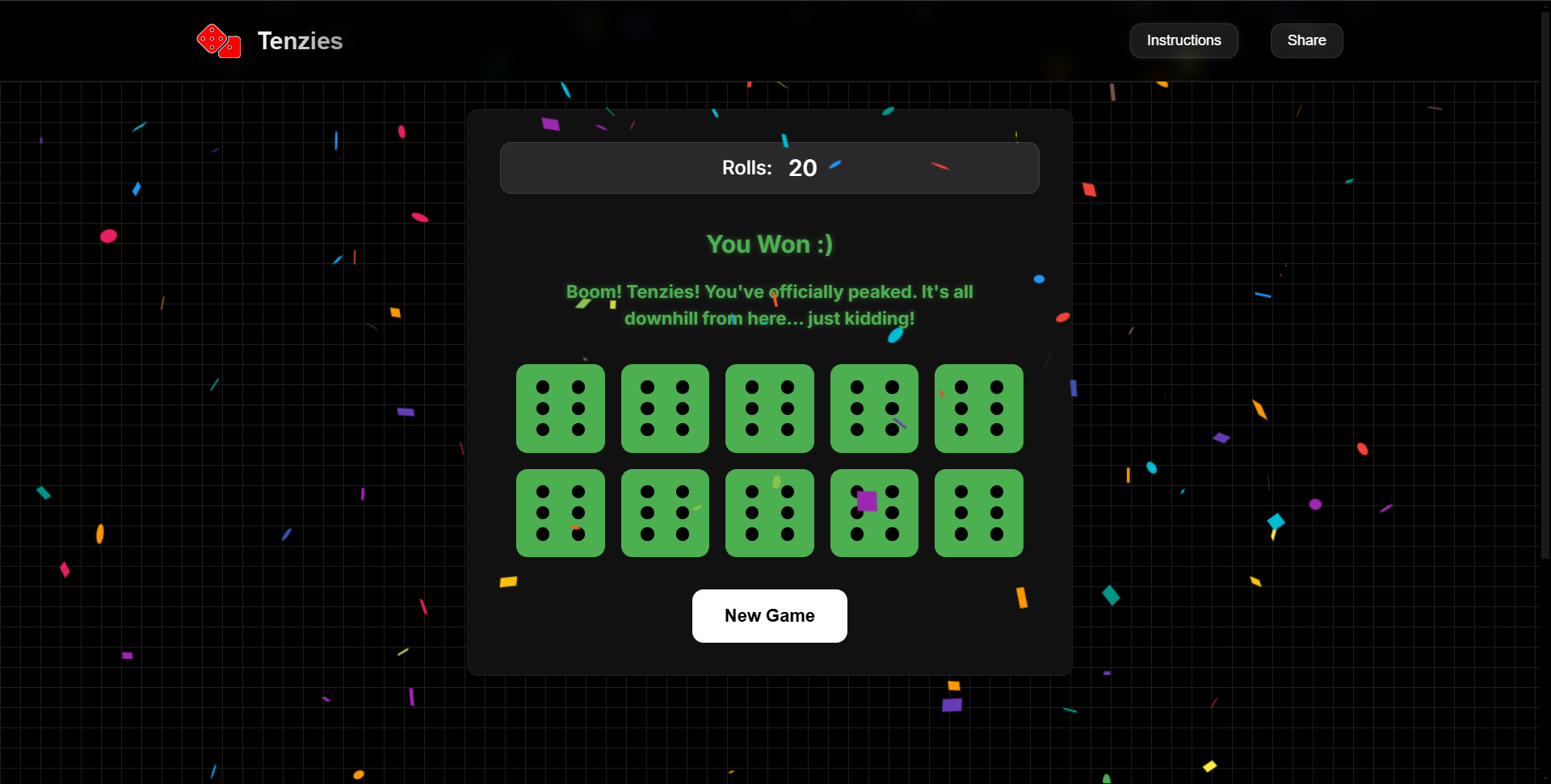
Game Lost
